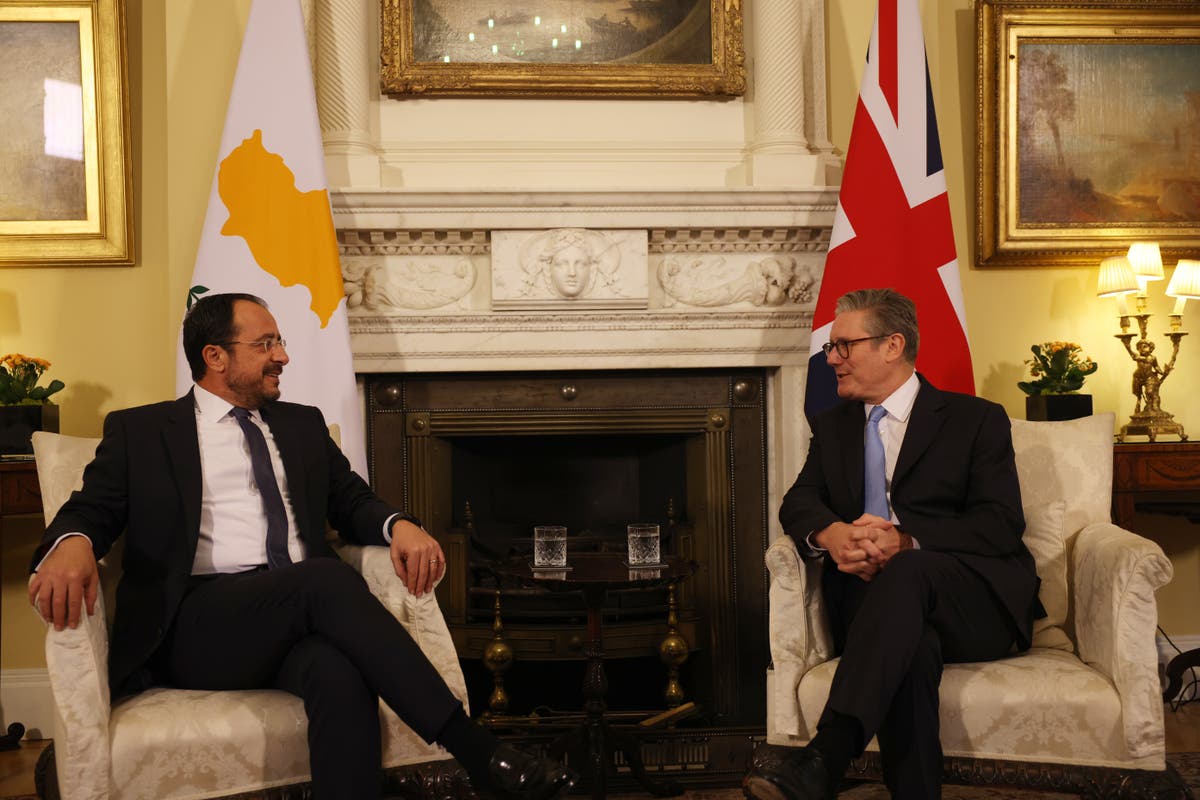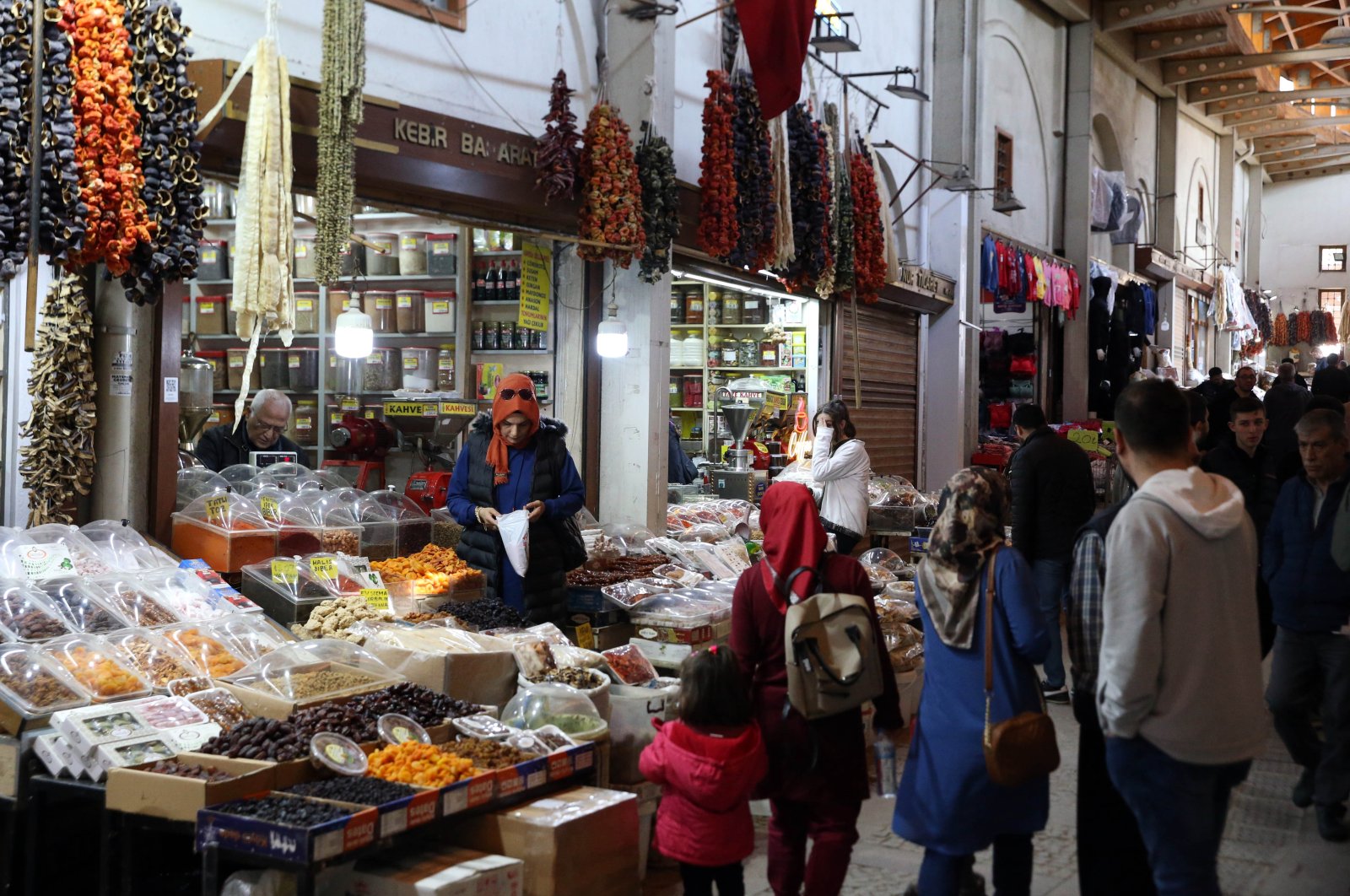Was Germany’s ‘kebab diplomacy’ in Turkey a hit or a miss?
German President Frank-Walter Steinmeier slices doner for guests during a reception in Istanbul on 22 April, 2024. X/@AlmanyaBE
The recent visit of German President Frank-Walter Steinmeier to Turkey didn’t just spark diplomatic conversations but also stirred discussions around a symbolic culinary exchange. With a 60-kilogram kebab skewer and the company of Arif Keles, a Berlin kebab shop owner, in tow, Steinmeier aimed at showcasing the fusion of cultures and the contributions of Turkish migrants to Germany.
While the visit was intended to strengthen bilateral ties, Steinmeier’s decision to include a döner kebab skewer and a kebab shop owner in his delegation became the talk of the town.
With bilateral ties between the two nations at a low, Steinmeier said in Istanbul the döner diplomacy during his first visit as head of state was aimed at highlighting the accomplishments of Germany’s 2.7 million people who have roots in Turkey.
Turkish President Recep Tayyip Erdogan shared a laugh with Steinmeier on Wednesday when Erdogan jokingly asked whether there were any leftovers of the doner kebab that Steinmeier sliced in Istanbul.
“I guess all of the doner kebab was consumed in Istanbul,” Erdogan told Steinmeier, who tried to show off his skills earlier in the week when he practiced cutting the signature Turkish dish.
The German leader’s videos of slicing meat from Keles’ doner kebab skewer alongside Istanbul Mayor Ekrem Imamoglu sparked charges of Orientalism on both German and Turkish social media. Doner kebab shops owned by Turks are quite common in Germany.
Steinmeier invites criticism
Some Turkish-Germans viewed Steinmeier’s gesture as reductive, reducing their community to a stereotype.
Journalist Ozan Demircan and others criticised the choice, suggesting that highlighting the achievements of prominent individuals of Turkish descent would have been more respectful and meaningful.
Demircan pointed to a deep bench of accomplished people Steinmeier could have chosen to highlight, including the BioNTech founders, Uğur Şahin and Özlem Türeci, or the film director İlker Çatak, who was nominated for an Oscar this year.
“Millions of guest workers helped build the German ‘Wirtschaftswunder’,” Demircan said on X, referring to the postwar “economic miracle”. “And the German president brings a döner kebap maker to Turkey,” he added.
Tuncay Özdamar from the public broadcaster WDR criticised the choice to spotlight the handheld snack as “from yesterday” and “cliched”: “If you visit Italy you don’t bring pizza,” he said.
As the row risked overshadowing a celebration of 100 years of diplomatic relations, Jörg Lau, an international correspondent at Die Zeit, simply posted: “C.R.I.N.G.E.”.
However, Keleş, whose grandfather worked for years in a German factory before opening his own restaurant in 1986, said before the trip that he was proud Steinmeier was taking him “to the home of my ancestors”, telling AFP it was a “great honour”.
Steinmeier hits back
At the joint press conference on Wednesday, Steinmeier was asked whether the hubbub over kebabs perhaps showed how superficial relations between Germany and Turkey had become.
“I don’t think it’s a sign of how superficial relations have become, but rather a sign of the superficiality of the debate about this visit,” Steinmeier replied.
In any case, he said, he was grateful to have been accompanied by a diverse delegation: “Arif Keles’ kebab is part of this diversity that has helped shape the new Germany.”
The visit occurred amidst strained relations between Germany and Turkey, marked by disagreements over various issues including the Gaza war and democratic principles. Erdogan’s support for Hamas and his perceived authoritarian measures have added to the tension between the two nations.
Despite the controversy, it was reported that doner kebab was also served during the banquet Erdogan hosted for Steinmeier.
Steinmeier’s delegation included families of guest workers, prominent Turkish-German businessmen and politicians.
Cultural significance of kebab in Germany
Despite the controversy, the presence of kebabs in Germany speaks to the country’s multiculturalism. Introduced by Turkish migrants, the döner kebab has become a staple of German cuisine, with annual sales reaching an estimated €7 billion. Its popularity underscores the integration of Turkish culture into the fabric of German society.
The doner kebab, originating as a cherished Turkish dish, has evolved into a global culinary sensation. Crafted from succulent lamb or beef, infused with a medley of spices, and slowly roasted on a vertical rotisserie, it is then delicately sliced and served alongside pita bread, crisp vegetables, aromatic rice, and golden fries.
This gastronomic delight transcended borders over time, reaching across the expanse of the Ottoman Empire and beyond. As people traversed the globe, they carried with them the tradition of the doner kebab, fostering its adoration in diverse cultures.
In Greece, it takes on the name gyros, often nestled within warm pita bread accompanied by cooling tzatziki sauce. Meanwhile, in Germany, it has embraced its identity as a beloved street food, typically nestled in a bread roll alongside vibrant salad greens and an array of tantalizing sauces.
Today, the doner kebab stands as a cherished culinary treasure, delighting the palates of millions worldwide.
Germany’s kebab diplomacy in Turkey stirred both admiration and criticism, reflecting broader discussions around cultural representation, integration, and diplomatic relations. While some viewed it as a meaningful gesture of inclusivity, others saw it as a missed opportunity to highlight the achievements of Turkish migrants in Germany.
With inputs from agencies
Find us on YouTube
Subscribe

)

